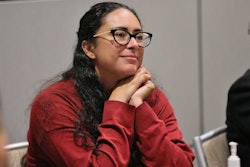A ‘Passport’ to a Four-Year Degree
HBCUs are finding the community college to be a valuable resource when looking to recruit students of color
By Ronald Roach
Cheryl Scott, a native of Norfolk, Va., wanted to attend a four-year college. After being a stay-at-home mom for more than a decade, Scott decided to pursue her dream of becoming an elementary school teacher. When she applied to Norfolk State University, she learned that her associate’s degree credits from a local two-year college could be not used because the school, which had closed sometime after she had earned her degree, had not been an accredited institution. To make matters worse, Scott’s high school academic record at a Norfolk public school fell short of the 2.0 grade point average NSU required for its matriculating students.
“It was so frustrating, and it made me wish I had done better in high school,” she says.
Fortunately for Scott, Norfolk State officials had established, in association with the Tidewater Community College system, a program called PASSport. Formerly an open admissions public university, Norfolk State worked out an agreement with Tidewater that would allow students not meeting the university’s admissions requirements to attend the community college to take remedial courses, usually for one or two semesters, before enrolling directly into Norfolk State.
“I had to start all over again, but (the PASSport program) got me into college,” says Scott, who expects to graduate in 2005.
Claiming that it’s the only program of its kind at a historically Black college or university, Norfolk State officials have embraced PASSport because they see it as a way to keep their doors open to students who in the past would have automatically gained entry under open admissions. In addition to PASSport, Norfolk State and Tidewater Community College officials signed an articulation agreement this past May to hammer out specific transfer arrangements for a variety of majors.














